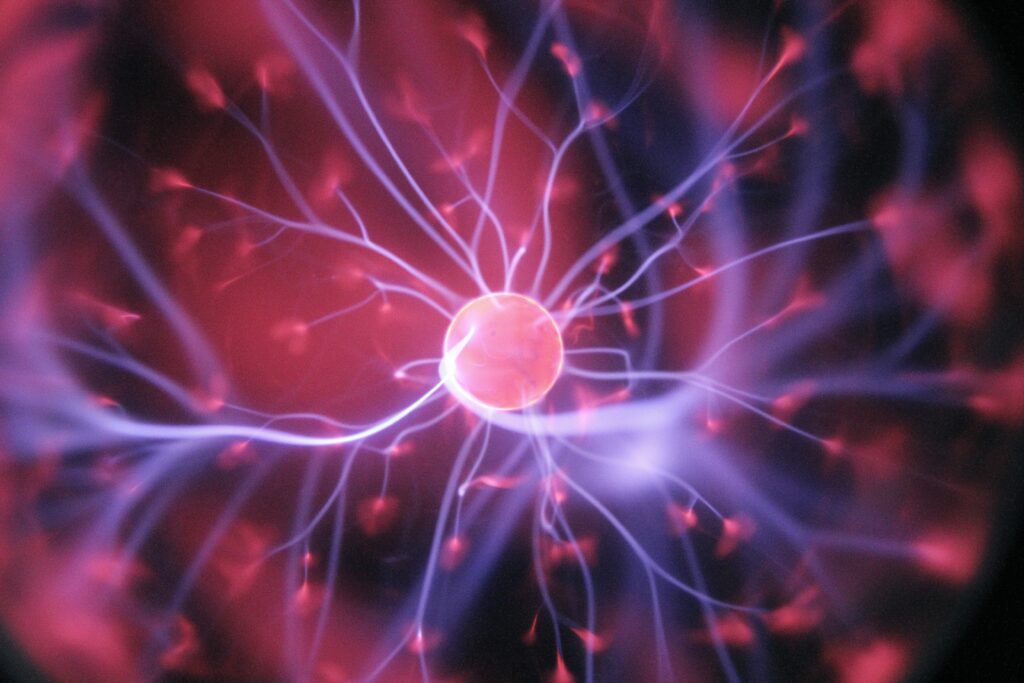
We’ve talked about our avoidance of the term “mental Illness” through the years, because it misrepresents psychiatric disorders. We’re now going a step further to emphasize that the head is part of the body, and that the key to treating these disorders may very well lie in the metabolism of the whole body. We’re going to be talking about the ins and outs of “metabolic psychiatry” in our quest to get more help for more people. A growing wealth of research is demonstrating the connection between the state of mitochondria in the body’s cells as a direct link to the state of a person’s mind. Studies are demonstrating that we can change the productivity of the mitochondria through diet — specifically therapeutic nutritional ketosis — and lifestyle changes. As a result, at Innovative Psychiatry, we’re expanding our practice to offer these developments to you.
Sound shocking? This idea that eating differently could impact psychiatric symptoms? That upgrading your food choices could not just reduce but stop symptoms that have plagued you for months… or years?
Granted, it might sound a bit far-fetched at first. But the more you understand about cells all over your body and how one group of cells affects another, the more sense it will make.
Therapeutic Nutritional Ketosis

We’ve seen this concept demonstrated in our work with anorexia nervosa, where after a period of therapeutic nutritional ketosis, we used IV ketamine treatment. We saw it work, replicated the approach with impressive results in a small pilot study that we published, presented at the International Conference on Eating Disorders in Washington DC, and discussed with Brett Scher, MD of Metabolic Mind on a video broadcast.
Working always with the premise that the head is part of the body, we’re seeing that using therapeutic nutritional ketosis can be effective in many other illnesses and disorders as well.
We know that stress wears down and prunes the dendrites and dendritic spines of neuron cells in the brain, and we also know this causes a dampening effect and a decrease of signals sent across the brain. Fewer signals result in less activity, less communication, less creativity, and less resilience. This can result in depression, mood switching, anxiety, and other disorders. We know that we want to see an increase in neurons, dendrites, and dendritic spines.
More circuits = more healthy signals, creativity, communication between areas of the brain, and resilience.
We also know that aging neurons tend to become dormant and less likely to send signals or reproduce themselves. For your mind and body to stay youthful and healthy, you need your cells to be functioning at their best. They need to reproduce themselves in an ongoing manner. When they don’t, dysfunction results. For example, dementia can develop.
Stem Cells Restore Specialized Neuron Cells
The cool thing about stem cells is that they can reproduce themselves over and over and over, continuously proliferating. They can also cause their new cells to develop specialized functions as needed. But when neuron cells age, what can we do to get them to proliferate new ones?
Think of stem cells as the unprocessed, built-in construction material of the body, and in this case, for the mind. When conditions are optimal, they reproduce to form all the other cells that specialize to perform specific roles.
But how to get conditions so optimal in a living, breathing, aging body? Because, as we’ve said, aging cells don’t reproduce that well.

A team of researchers led by Jean-Claude Martinou and Marlen Knobloch at two Swiss universities, discovered that these neurons can be increased in the adult brain. Remember, the head is part of the body. There are parts of the brain that contain quiet, non-active neural cells that are actually stem cells. Still, neuroscientists haven’t understood how to get these stem cells to increase in number.
These researchers discovered just how an aspect of metabolism enables these neural stem cells to overcome their dormant state and become active again. And when they’re active, they can regenerate. It’s all wrapped up in the mitochondria.
Mitochondria Regulation
You may know that the energy factory in the cell is the mitochondria. This special part of the cell contributes a variety of vital services, and your body flourishes as the mitochondria flourishes. The researchers discovered that the mitochondria contribute to regulating how much these neural stem cells are activated.
A protein complex in the mitochondria called the pyruvate transporter actually influences the possible roles a cell can fulfill.
This gets a bit complex, but here’s the crunch. When researchers know and understand that metabolic pathways separate active cells from dormant cells, these researchers can wake up the dormant cells by changing their metabolism in the mitochondria.
Let’s say that again.
Changing the direction of metabolic pathways can improve the activity state of neural stem cells and in doing that, the neural stem cells can generate more and more new neuron cells. In a word: neurogenesis.
Since the head is part of the body, producing new neurons can reverse the symptoms of depression and other disorders.
We’re going to be talking more about cell metabolism, mitochondria, and how to impact mitochondria with nutrients to generate and proliferate neurogenesis… brain cell production.
More To Learn…

In coming weeks, we’re going to talk about using nutrients to improve your frame of mind and psychiatric symptoms. Therapeutic nutritional ketosis is all about upgrading your food choices to optimize your cell metabolism, kick up your brain energy, and tamp down your anxiety to help you get better. That’s the therapeutic part. And that’s what’s at the heart of what we offer with the metabolic psychiatry program we offer.
We were on the cutting edge when we first offered ketamine treatment, and it has since emerged as a rapid, effective, office-based psychiatric treatment, now helping thousands upon thousands of people with psychiatric disorders around the world.
A New 21st Century Breakthrough
Now we’ve added another 21st century transformative treatment to our practice: metabolic psychiatry using therapeutic nutritional ketosis and other lifestyle approaches in a unique wrap-around approach.
At Innovative Psychiatry, we’re utilizing breakthrough transformative treatments for your improved health and wellbeing.
These breakthrough treatments spell hope for you. If you’re among the 35-40% of depressed people for whom traditional antidepressant medications aren’t effective, these alternative — and effective — treatments can make all the difference for you, your life, and relationships.
If you suffer from severe depression, bipolar disorder, anxiety, or trauma… if you struggle with food or weight… if you want to optimize your health and begin to just feel good day after day, call us.
We can offer you innovative treatment that can reverse your symptoms, and explode your hope.
Come walk with us and give your best self access to the rewarding life you deserve.

To the restoration of your best self,
